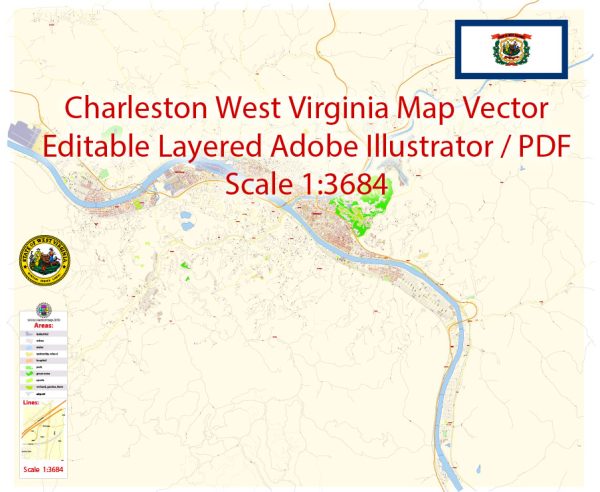General economic description of Charleston, West Virginia. Charleston is the capital and largest city in West Virginia, and its economy is influenced by various sectors and industries. Here is a snapshot of its economic characteristics:
- Government: As the state capital, Charleston’s economy benefits from government-related activities, including state and local government employment. This sector includes a significant number of jobs in areas such as administration, public safety, and education.
- Healthcare and Education: Charleston is home to several healthcare institutions and universities, contributing to a sizable healthcare and education sector. These institutions provide jobs and attract students from the region.
- Manufacturing: Historically, manufacturing has played a significant role in Charleston’s economy, with industries such as chemical manufacturing, steel, and coal-related activities. However, the decline of the coal industry has had an impact on this sector.
- Energy: West Virginia has traditionally been associated with the coal and natural gas industries, but the coal industry has faced challenges in recent years. The state has been diversifying its energy sector to include renewable energy sources like wind and solar.
- Retail and Commerce: Charleston serves as a regional hub for commerce and retail, with various shopping centers, restaurants, and businesses contributing to its economic activity.
- Transportation and Logistics: The city’s strategic location along the Kanawha River and the presence of transportation infrastructure, including roads and rail, make it an important hub for transportation and logistics activities.
- Tourism: West Virginia’s natural beauty and outdoor recreational opportunities, including nearby hiking, fishing, and boating areas, contribute to the tourism sector in Charleston. The state capital also hosts cultural and historical attractions.
- Small Businesses: Like many cities, small businesses play a significant role in Charleston’s economy, providing a wide range of goods and services to the community.
It’s important to note that economic conditions can change due to various factors, including shifts in industry, policy changes, and global economic trends. For the most up-to-date and detailed information on Charleston’s current economic situation, you may want to refer to local economic reports, government publications, or contact local chambers of commerce and economic development agencies.


 Author: Kirill Shrayber, Ph.D. FRGS
Author: Kirill Shrayber, Ph.D. FRGS